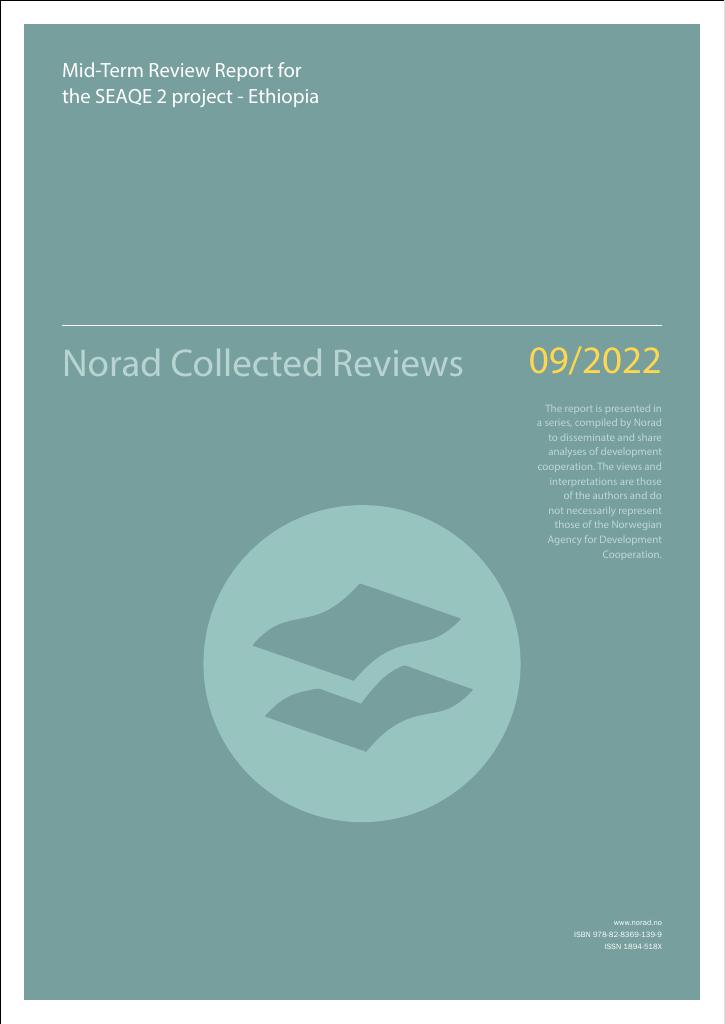Statusrapport
Mid-Term Review Report for the SEAQE 2 project - Ethiopia : desentralisert evaluering/Norad Collected Reviews 9-22
The SEAQE 2 project is focused on providing secondary and Technical and Vocational Education and Training (TVET) to female and male students from the East Shewa and West Arsi Zones in Ethiopia to enable them to access, engage and learn in inclusive, quality and relevant learning environments. SEAQE 2 in Ethiopia strongly supports education pathways for youth, out of school children (OOSC), children with disabilities and others that experience marginalisation. In this phase of the project, ADRA Ethiopia hoped to leverage public/private/non-profit partnerships for increased quality, market-relevance, and innovation in education. The result being that students would gain knowledge, skills and values to become productive and responsible citizens. Prior to the start of SEAQE 2, the new, more liberal government came into power and rapidly pushed a series of reforms, including the lifting of many human rights restrictions. Thousands of political prisoners were released, including journalists and opposition leaders. A new peace treaty was signed with Eritrea, resolving a decades-long stalemate. Since then, the space for Nongovernment organisations (NGOs), including management protocols, has improved significantly. NGOs can access most parts of the country. Despite this progress, intercommunal conflicts impacted the target area. Approximately 620,000 Ethiopians were displaced due to fighting in the Southern and Oromia regions, and an attempted coup during May-June 2019 forced another state-of-emergency in Ethiopia. This conflict and rioting affected project activities. It disrupted activity flows and affected the education system as schools closed frequently and teachers and staff reported feeling insecurity.
